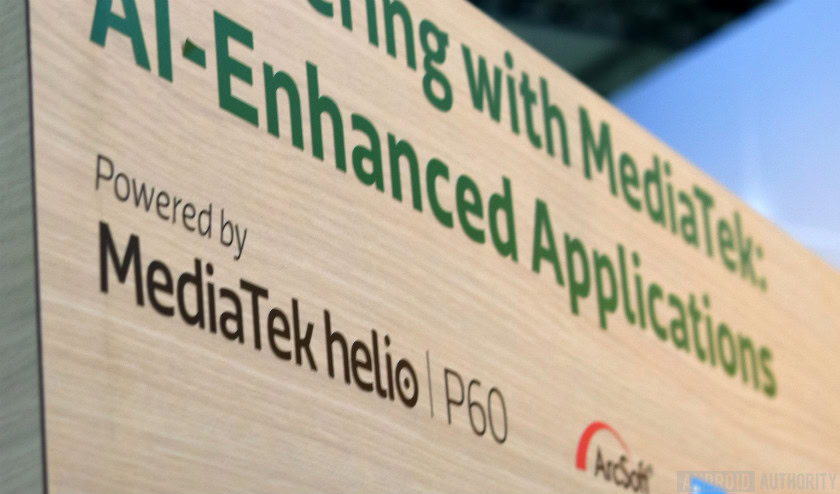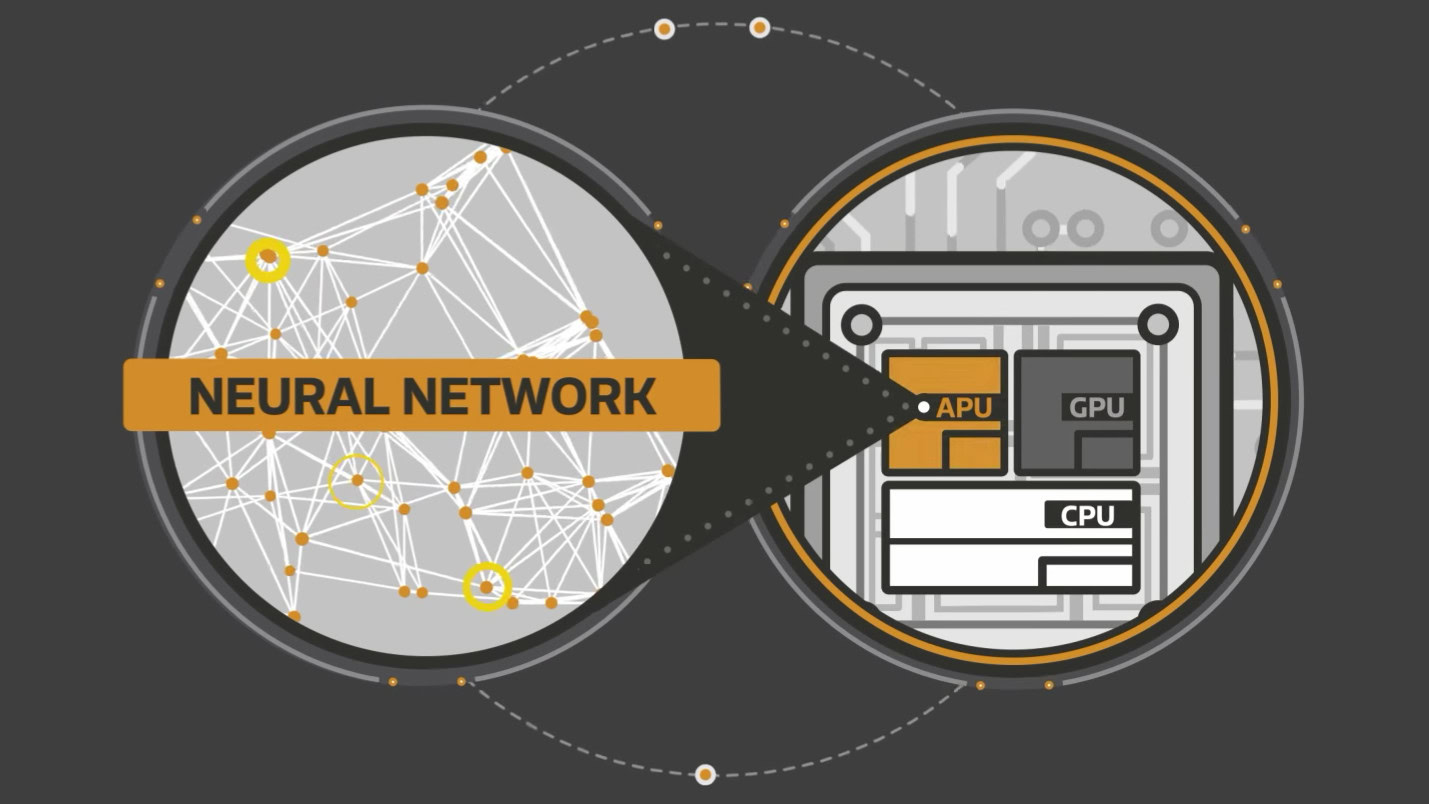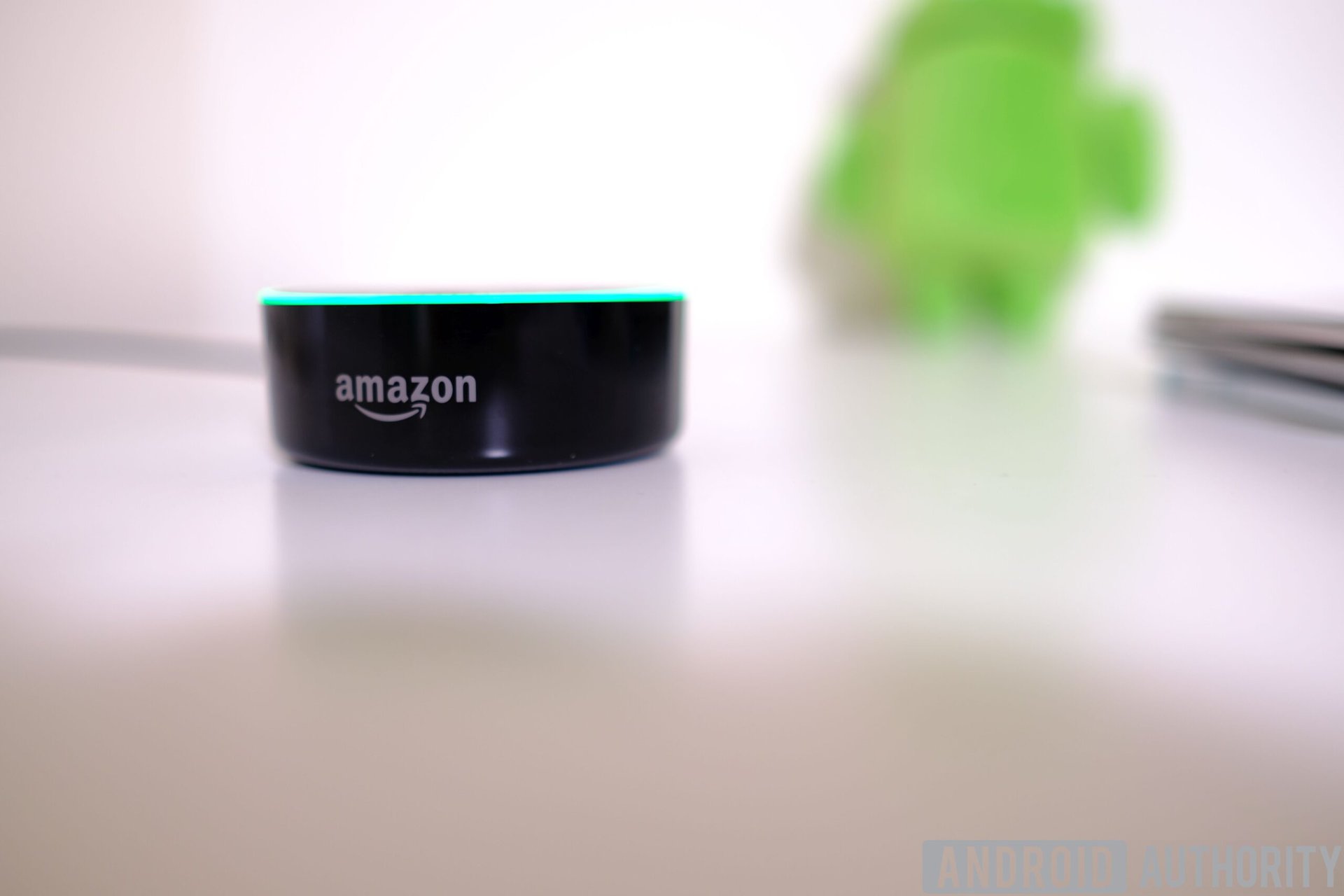Affiliate links on Android Authority may earn us a commission. Learn more.
MediaTek's big play for AI
Published onMarch 1, 2018

Artificial intelligence is quickly turning into the mobile trend of 2018. Almost every major product and hardware release touts some form of intelligence. At MWC 2018, we spoke to MediaTek’s Finbarr Moynihan about the company’s latest chip, the Helio P60, as well as some of the company’s longer term plans and goals for AI and 5G.

MediaTek isn’t bucking the current trends of how AI is used. The company is looking to support edge compute, such as performing image recognition on your smartphone, and pass data off to the cloud. Just like Qualcomm, HiSilicon, and Apple, the company now has a chip that boasts “AI capabilities,” but there’s much more to its ambitions.
Multi-core AI in the Helio P60
The first MediaTek SoC to boast a dedicated piece of AI hardware is the new Helio P60, with its integrated AI processing unit (APU). MediaTek is licensing this APU from an undisclosed partner. A gander back through the company’s history points to Cadence’s Vision P6 as the likely candidate, as the company has used its Vision P5 technology for the DSP in previous MediaTek chips.
The Helio P60 implements a dual-core AI engine. This is a somewhat similar approach to Qualcomm, which uses its multi-core Hexagon DSP for some machine learning tasks on its high-end Snapdragon processors.

MediaTek’s NeuroPilot and accompanying SDK are the brains tying the company’s AI hardware into its SoC. On the device, NeuroPilot acts as a scheduler, deciding if a machine learning task can be most efficiently run on the CPU, GPU, or APU. As an SDK, it gives developers access to Android Oreo’s Neural Network APIs and ensures code from popular tools like TensorFlow run on the company’s hardware.

MediaTek suggests handset developers work closely with some of the company’s code to design pre-installed apps, such as a camera, to make the most of its machine learning capabilities. The general idea is to make sure third party applications are supported across a range of AI-capable platforms.
The company was keen to point out it still very much views today as the starting point of the machine learning trend in mobile. Hardware will almost certainly change and be revised over time as it’s determined which machine learning applications are best suited for the edge or the cloud. The SDK will of course be updated over time, but this approach also ensures hardware will be supported as the ecosystem evolves.

Other SoCs and products
As you might expect the Helio P60 will be just the first in a range of AI-powered chipsets from the company, although we’ll have to wait for any further announcements. The Helio P60 is positioned for competitive mid-tier price points and the plan appears to be for AI hardware to trickle down into other products in this price range.
MediaTek’s current APU technology can be scaled from single core to multi-core configurations. So just like its various CPU cluster implementations, the company can also scale its APU technology across product and price ranges. We could well see even lower cost LITTLE core-based chipsets and other configurations boasting AI capabilities in the future. Even chips designed for other markets and product categories could include them.
Even before the launch of its AI chip, MediaTek was already powering the hugely successful Amazon Echo.
The company’s NeuroPilot initiative isn’t just designed with smartphones in mind. It’s designed to support devices across product segments and even operating systems. Android, Linux, and RTOS for embedded applications are supported, complete with tools to keep devices connected to the internet. Anything from smart IoT devices right through to to security equipment, mobile devices, and automotive, many of which were on show at MWC, can use it.
MediaTek chips already power a wide range of connected devices, like smart TVs, routers, plugs, and a huge number of smartphones. They’re even in the Amazon Echo, one of the most popular devices in the smart home and consumer AI spaces, and a ton of other Amazon products.
The company purchased Airoha last year, which granted it an extended portfolio of Bluetooth chipsets. Combined with its microcontroller range, MediaTek can also offer options for low power IoT devices, wireless headphones, and other Bluetooth products.

Wrap up
MediaTek is targeting a broad base with its AI platform, from IoT to smartphones and automotive.
MediaTek is targeting a very broad base with its AI platform, even though the Helio P60 is designed for smartphones. The only other company with such sweeping plans in the mobile space is Qualcomm, so the two look set to go head to head once again. The orange team might not have been first with an AI smartphone chip, but it’s already been a key part of the consumer AI revolution with its involvement in the Amazon Echo and similar products.
Whether or not the company can position its AI products for major market uptake remains to be seen. But MediaTek’s proven partnership with Amazon and target market of more affordable — and arguably more vibrant mid-tier devices — makes things seem promising.